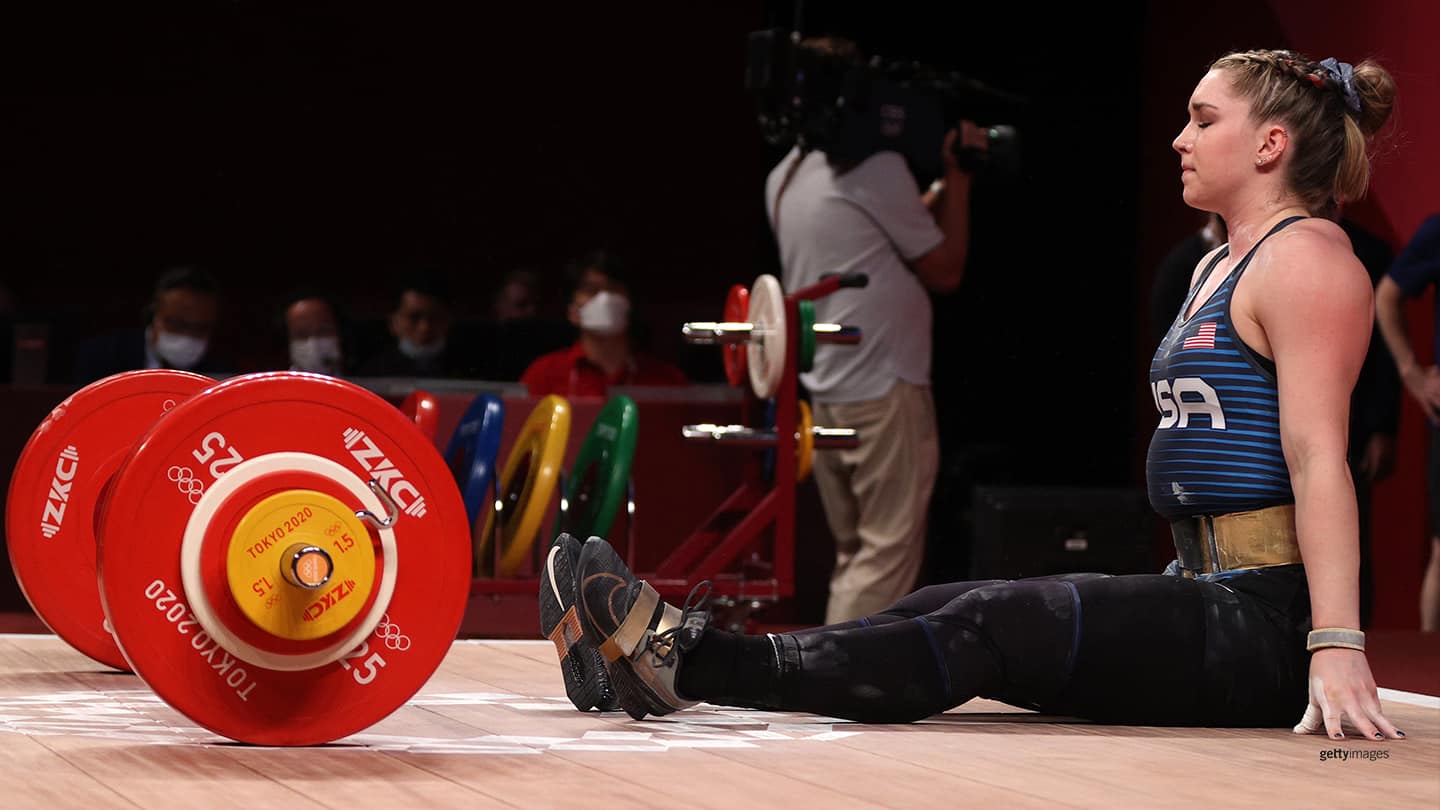
After Latest Success, Weightlifter Mattie Rogers Is Still Processing What Has Been An Emotional 2021
by Joanne C. Gerstner

Mattie Rogers competes during the women's 87 kg. during the Olympic Games Tokyo 2020 on Aug. 2, 2021 in Tokyo.
Years from now, when weightlifter Mattie Rogers looks back on 2021, she’s going to tell quite the tale.
She had her dream wedding, after a year delay due to the COVID-19 pandemic. The couple finished a long-anticipated weight room/training facility at their Florida home. She was a first-time member of the U.S. Olympic Team at the Olympic Games Tokyo 2020. Then, just this month, she took home the silver medal for total weight in the 76 kg. division at the Pan American Weightlifting Championships in Guayaquil, Ecuador.
She also faced down one of the hardest moments of life, a serious panic attack, during competition at the Tokyo Games. It hurt her performance, and her status as a medal contender going into Tokyo quickly crumbled into a sixth-place finish.
All of this happened in one year. Whew.
“I don’t think everything that has happened has fully hit me or been processed yet,” said Rogers, 26, a resident of Geneva, Florida, said. “I am still working on getting back into regular life, here at home, because it has been such a whirlwind. The good, the bad, all of it, are really important experiences this year. Big things. Good things.”
Her two biggest things, the Olympics and the wedding, were both supposed to be in 2020. And both got pushed into 2021. Nearly a year and a day from their original wedding date, Rogers and her now-husband Sean McCormick got married in Iceland on Sept. 24.
They knew they wanted a super small ceremony — just the couple, with no guests or wedding party — somewhere outside in the dramatic and rugged terrain of Iceland. They also knew they weather would be unpredictable, throwing rain, hail, snow, sun and wind into one day.
The wedding day involved hours of hiking, sometimes in the rain, with Rogers pulling it off while wearing her dress. Their photos show off the lush green hills, wispy waterfalls and the friendly cows that graced their day. Her perfectly styled hair fell flat from the elements within an hour, but she was good with all of it.
“We never wanted a traditional wedding, and we wanted to do something where we just went with the flow after Tokyo,” she said. “When we could go, we would go. And it was perfect. It was exactly what we wanted.”
Rogers is still working through what happened in Tokyo. She went into the Games as one of the faces of a heralded new generation of U.S. weightlifters, the owner of two silver medals at the world championships (plus a handful of others in the individual lifts).
Adding to her collection in Tokyo wasn’t in the cards. Rogers knows the debilitating panic attack stemmed from severe depression and anxiety. She has been open about her health challenges, and normally manages them with medication and therapy. However, on that day in Tokyo, her body and mind were not in a place to let her compete.
“The Olympics are a bummer to me, and I am a little bitter. I was in the best physical shape, and my training was so good,” Rogers said. “I just happened to have the worst panic attack ever, at the wrong time on the biggest stage. I could not get it back together.
“It is what it is. My brain was in control of that, and I was just going to have to suffer through it. And I did. I’ve never experienced that in competition before. I’m pretty good at handling it at other times, as I can go somewhere and get myself together. However, that was not possible, especially right then and there at the Olympics. I had to try to compete mid-panic attack, and yeah, that did not go well.”
She ended the competition in tears, and then tried to get some composure back to speak to the media moments later. It was hard. All of it.
Rogers came home from Tokyo and decided to get to the bottom of the panic episode. She is working with doctors and understands the shift in her treatment plan may affect her performance in the short term. She is happy to be home, with her husband and their three cats, and back to working out and coaching in her own space.
“That really prompted me to take my mental health even more seriously,” she said. “There is too much at stake if I don’t. I may have my performances suffer a little bit, but if it happens, it happens. I need to get my brain under control right now in the down part of the year. I want to hit the ground running next year, to get ready for everything that is ahead.”
Joanne C. Gerstner has covered two Olympic Games and writes regularly for The New York Times and other outlets about sports. She has written for TeamUSA.org since 2009 as a freelance contributor on behalf of Red Line Editorial, Inc.